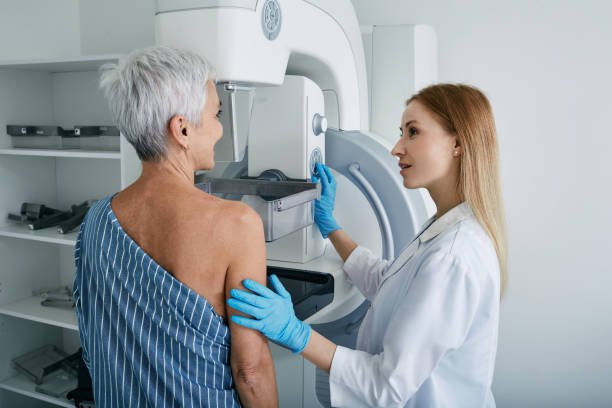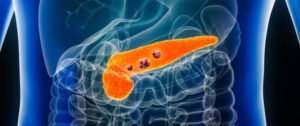
Itchy Nipples and Discharge Are Warning Signs of Breast Cancer! “Paget’s Disease of Breast ” Symptoms Like Eczema
Since half a year ago, 53-year-old Mrs. Mrs Lincoln’s nipples have been prone to itching, redness, swelling and stinging. After repeated scratching, ulcers, tissue fluid leakage and bleeding will appear, similar to eczema symptoms. Mrs. Mrs Lincoln went to the dermatology department and applied medicine. Although her symptoms temporarily improved, they recurred not long after.
Mrs. Mrs Lincoln couldn’t bear the trouble for several months before going to the hospital for breast surgery. After the doctor’s examination and breast examination report came out, he explained to her: “You are suffering from Paget’s disease. This disease is usually caused by breast cancer and requires further examination.”
Paget’s disease of breast: A warning sign of breast cancer or breast precancerous changes
Paget’s disease of the breast (or Paget’s disease of the nipple) is a rare breast disease with unknown cause, but patients will have symptoms of eczema on the nipple and may be complicated by breast cancer.
The medical community generally believes that skin symptoms on patients’ nipples are caused by malignant tumors such as invasive breast cancer or breast carcinoma in situ that have spread along the breast ducts to the nipple or areola.
Most patients with Paget’s breast disease are women, but there are also cases in men, with the disease most commonly occurring in those over 50 years of age. 1/3 of patients with Paget’s disease of breast are complicated by invasive ductal carcinoma, and 2/3 are complicated by breast carcinoma in situ. Among general breast cancer patients, 1 to 4% of patients are complicated by Paget’s disease of breast.

Symptoms of Paget’s disease are similar to eczema, and hard lumps may appear on the breasts after exacerbation
In the early stages of the disease, patients may find that the nipple of one breast is itchy or red, with a stinging or burning sensation. As the disease progresses, the itchy nipples will begin to peel, scab, ulcerate, bleed and ooze tissue fluid, and gradually spread to the surrounding areola. At this time, the nipple may gradually become flat or sunken, and hard lumps may begin to appear inside over time.
2 tips for self-testing for Paget’s disease
Since the early symptoms of Paget’s disease are similar to eczema, most patients usually apply ointments on their own or go to dermatologists for treatment. Dermatologists will often diagnose the symptoms as eczema. In addition, the nipple is a private part, which makes women shy. To see a doctor. Therefore, it usually takes 6 to 8 months for patients to go to the hospital for examination and diagnosis after the onset of the disease. Therefore, the delay causes the spread of cancer cells and the worsening of the cancer.
The simple way to judge Paget’s disease is the location of the affected area and the effect of treatment. Generally speaking, eczema will occur on both left and right nipples at the same time, while Paget’s disease most often affects one nipple (but in rare cases, it may also occur on both sides).
Secondly, eczema usually improves quickly within a short period of time after being treated with steroid ointments. If the affected area does not improve after more than 2 weeks of application, it is recommended to go to the hospital for a complete breast examination.
If Bergey’s disease is treated early, there is no need to worry. Most patients have a good prognosis
The doctor will conduct a nipple biopsy to determine whether you have Paget’s disease. If Paget’s disease is diagnosed, further breast ultrasound examination and mammography will be arranged to evaluate the course of breast cancer.
Depending on the course of the disease, doctors will develop different treatment plans. Breast cancer can be divided into breast cancer in situ and invasive breast cancer based on pathology and degree of spread. The former means that cancer cells still exist in the basal layer of the breast ducts or breast lobules, and the latter means that the cancer cells have spread to the surrounding breast tissue. Most patients with Paget’s disease are diagnosed at the stage of breast cancer in situ and should be treated immediately.

Breast cancer treatment is mainly surgical, with hormonal therapy, chemotherapy, radiotherapy or targeted therapy depending on the postoperative results. Patients with early-stage breast cancer generally recover well after appropriate treatment, and patients do not need to worry.
If you find that your nipples are abnormally itchy or red and swollen, observe them first according to the simple judgment method. In most cases, nipple itching is usually a benign problem. However, if symptoms are found on only one nipple and there is no improvement after taking medication for a period of time, it is recommended to go to the hospital for examination as soon as possible to seize the opportunity for treatment to avoid worsening of the condition.











